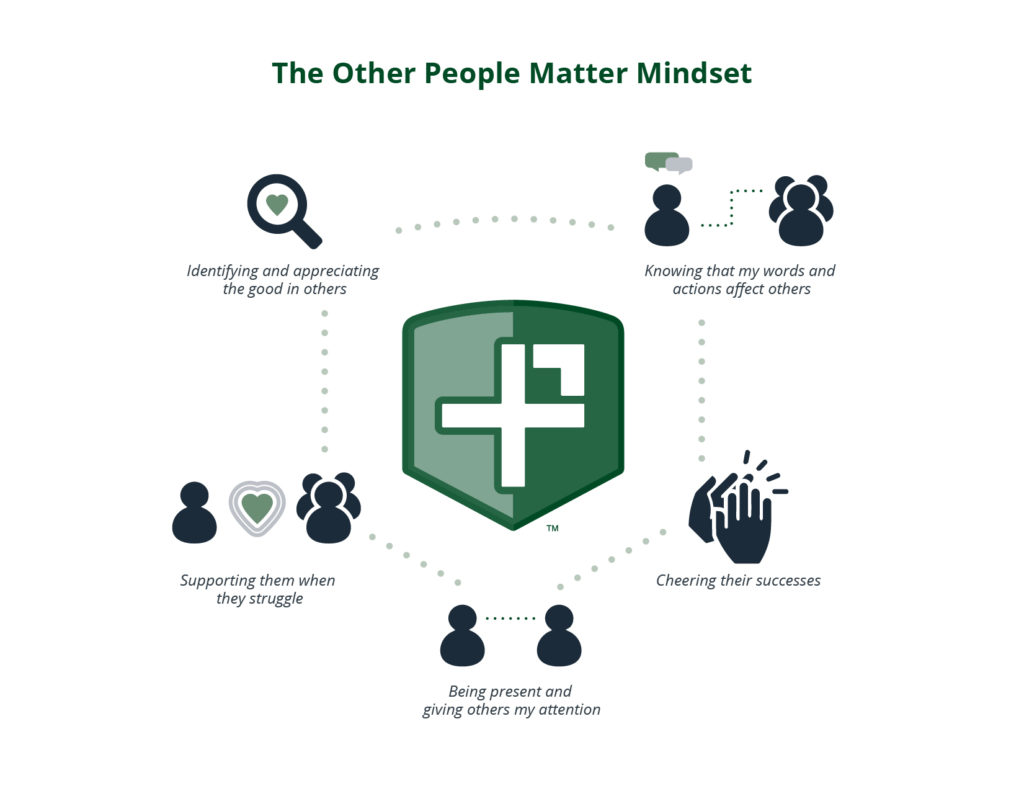Week 21 - OPM2 Cheering Others Success
By Jeff BryanHe stepped in and did his thing. (I just told him) ‘Ball. Play your game.’
-Jalen Hurts
-
For the P2 Reflection Journals, used by all elementary students at the end of the week, click here.
Photo Credit: 2018 Getty Images
This element of the Other People Matter Mindset (OPM2) means that when other people succeed, you are happy for them and cheer them on.
Being happy for other people when they succeed isn’t always everyone’s initial reaction. Often, it’s easy to become jealous or envious of others’ victories – or even to experience schadenfreude, which is deriving pleasure from witnessing (or learning about) another person’s misfortune. People who have these reactions to the success or misfortune of others are colloquially known as “haters.” It’s important to note that these are natural emotions and in small doses can be helpful in allowing us to see what we care about – and motivate us to pursue those goals.
But making a commitment towards cheering on other people’s successes can be a great way to improve our own health, happiness, and relationships. People can take active steps to be more genuinely happy for the achievements of others. Ways to do this include: telling others about the success of your modest friend; noticing when your reaction to a sibling’s success is envy or jealousy – and asking yourself why that is; reminding yourself that appreciating the excellence in another is a character strength; asking your successful teammates and classmates what they do to prepare for games or tests.
This week’s example is Jalen Hurts. Hurts was the starting quarterback at Alabama during his freshman and sophomore seasons, compiling a 24-2 record. Then, on college football’s biggest stage — the national championship game — he was benched at halftime. Hurts’ backup, Tua Tagovailoa, went into the game and led Alabama to a comeback victory and a national championship.What did Hurts do? He supported Tagavailoa and cheered him on.
Then, the following year, he returned to Alabama and was the backup — before subbing in for an injured Tagavailoa in the SEC Championship game and leading his team to a comeback victory. Just because he supported his team and cheered them on — even though he wanted to be the starter — didn’t mean that Hurts stopped competing for the starting spot. And, when the time came, he was ready.
Not only did Hurts embody the Other People Matter Mindset for his teammates, but throughout all of the media and fanfare, he showed true humility, self-control, and perseverance. That’s why it’s no surprise that Alabama fans have so much respect for him even as he moves to another college for his senior season.
So, why does this matter?
On an individual level, being supportive of people who succeed is good for our mental, physical, and emotional well-being. Envy and jealousy often derive from a common place: a sense of inadequacy. So, by actively reminding yourself to cheer a friend or colleague’s success (and doing it) can help you “fake it until you become it” with it being self-confidence.
On a group level, when people cheer each other on it begins a reciprocal process that forges stronger relationships. And, those relationships are the foundation for a strong culture in teams, schools, and businesses.

And, as a reminder, you can find all of our weekly slide presentations on our website’s Resources page here. This page is the place that we recommend you go to access all of the resources — not via Google Drive folders.
To find your grade level’s presentation, you can simply type the word “OPM2 Cheer Successes” into the Resource Title search bar or sort by Character Strength and select OPM2 Cheer Successes. Each of those options will provide you with 10 slide presentations. For a simple overview of the Resources page, with pictures and videos, click here.


